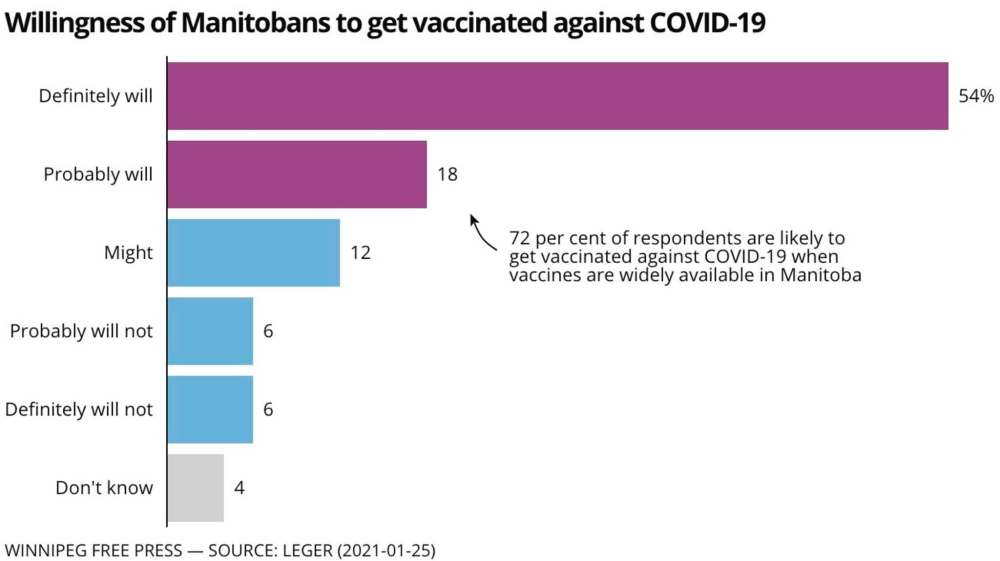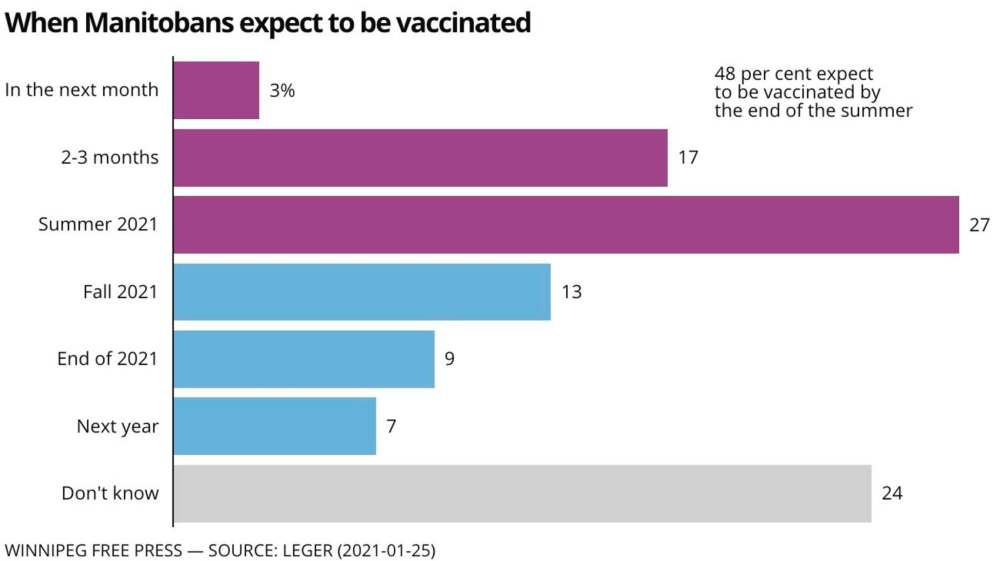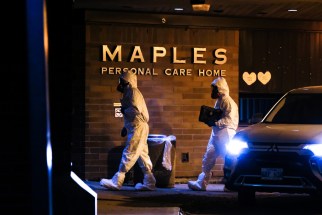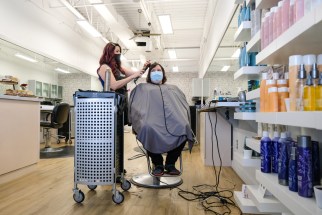72 per cent of Manitobans want to be vaccinated at first opportunity: poll
Read this article for free:
or
Already have an account? Log in here »
To continue reading, please subscribe:
Monthly Digital Subscription
$0 for the first 4 weeks*
- Enjoy unlimited reading on winnipegfreepress.com
- Read the E-Edition, our digital replica newspaper
- Access News Break, our award-winning app
- Play interactive puzzles
*No charge for 4 weeks then price increases to the regular rate of $19.00 plus GST every four weeks. Offer available to new and qualified returning subscribers only. Cancel any time.
Monthly Digital Subscription
$4.75/week*
- Enjoy unlimited reading on winnipegfreepress.com
- Read the E-Edition, our digital replica newspaper
- Access News Break, our award-winning app
- Play interactive puzzles
*Billed as $19 plus GST every four weeks. Cancel any time.
To continue reading, please subscribe:
Add Free Press access to your Brandon Sun subscription for only an additional
$1 for the first 4 weeks*
*Your next subscription payment will increase by $1.00 and you will be charged $16.99 plus GST for four weeks. After four weeks, your payment will increase to $23.99 plus GST every four weeks.
Read unlimited articles for free today:
or
Already have an account? Log in here »
Hey there, time traveller!
This article was published 25/01/2021 (1780 days ago), so information in it may no longer be current.
Despite weeks of living under code red restrictions due to exploding COVID-19 case numbers and deaths, a sizable minority of Manitobans aren’t interested in rolling up their sleeve right away.
A Leger poll commissioned by the Winnipeg Free Press found less than three in four Manitobans (72 per cent) want to be vaccinated when doses become widely available.
Out of 800 adults surveyed, 24 per cent said they don’t want to get the vaccine at first opportunity, while a further four per cent were uncertain what they would do.
Andrew Enns of Leger says the Manitoba numbers mirror opinions across the country.
“There are no big surprises here,” Enns said Monday.
“The professionals say we need 75 per cent or higher for herd immunity. In the United States, they have 54 per cent who say they want to get the vaccine, so they have a problem there. But while in Manitoba it is 72 per cent, it is just over 70 per cent nationally.”
Provincial health officials need to bolster the messaging about why people need to get the vaccine and how safe it is, Enns said.
“This is not the hardcore anti-vaxxer crowd. In Manitoba, they are probably six to seven per cent — but you have another 15 or 20 per cent that, for various reasons, are hesitant and will be slow to get in to the queue.”
Dr. Joss Reimer, medical lead for the province’s vaccination task force, said the numbers are also what the province has been hearing in its surveys — and she is happy with it.
“It is encouraging,” Reimer said. “It is quite a bit higher than we’ve seen in the annual flu campaign.”
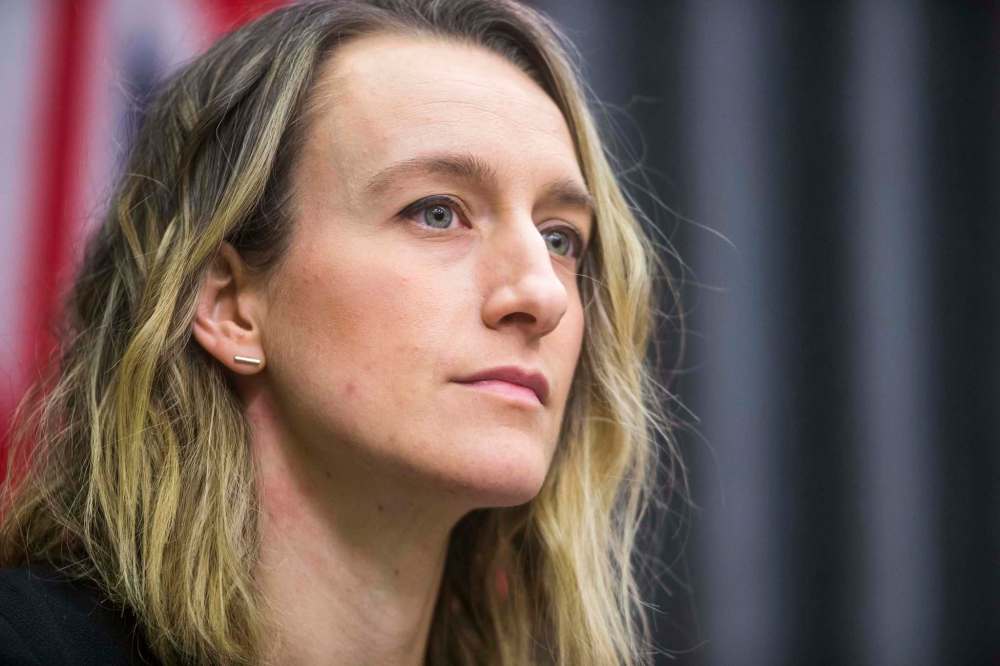
The hope is, as this majority of people get vaccinated, the holdouts will be persuaded to come forward and roll up their sleeves as well, she said.
“People will get more comfortable with it,” Reimer said. “It is encouraging to start… As more people get vaccinated, it is easier for us to understand the motivations behind people not getting it… then we could address it with the holdouts.”
According to the poll, 57 per cent of Manitobans say they didn’t want to be in the first wave of getting the shot, willing to wait and see because they are concerned about the safety of the vaccine and any side-effects.
However, more than two-thirds say health-care employees should have no choice and the vaccine should be mandatory for such workers.
The poll shows how quickly Manitobans want the vaccine goes up or down with age: 82 per cent aged 55 and older said they “definitely/probably will” get vaccinated, compared with 65 per cent of those aged 18-54.
Manitobans, at 71 per cent, also say they are comfortable with who the government has chosen to prioritize in vaccine distribution. The province has so far tabbed health-care workers, residents in personal care homes, and First Nations.
Recently, groups representing adults living with special needs have been pushing both the provincial and federal governments to prioritize that population, citing increased health risk.
The province announced Monday a total of 29,751 doses have thus far been jabbed into the arms of Manitobans.
Jason Kindrachuk, an assistant professor in microbiology and infectious diseases at the University of Manitoba, said he thinks more people will want to get inoculated as the doses continue to roll out and more vaccine brands are approved for use in Canada.
“I think that the numbers actually look like they’re improving a bit,” Kindrachuk said. “There had been a prior survey that suggested up to 35 per cent of Manitobans were very hesitant about vaccination.
“So, I would say that we’re seeing improvements to that. but that we’re still facing concerns about safety… that’s not overly surprising to me and I think we’ll see decreases in those concerns as more info becomes available demonstrating that the vaccines result in decreased disease burden, a la Israel.”
It was a stance echoed by Michelle Driedger, a U of M professor of community health and prominent researcher in public health communication.
“It is because these are new vaccines,” she said. “Even with H1N1 (in 2009-10), there was an initial reluctance.
“It is not unexpected. People may just want to wait a bit… for the most part, it is being accepted.”
The poll of 800 adult Manitobans was conducted through an online survey Jan. 15-21. If the data had been collected through a probability sample of Manitobans, its margin of error would be within plus or minus 3.5 per cent, 19 times out of 20.
kevin.rollason@freepress.mb.ca

Kevin Rollason is one of the more versatile reporters at the Winnipeg Free Press. Whether it is covering city hall, the law courts, or general reporting, Rollason can be counted on to not only answer the 5 Ws — Who, What, When, Where and Why — but to do it in an interesting and accessible way for readers.
Our newsroom depends on a growing audience of readers to power our journalism. If you are not a paid reader, please consider becoming a subscriber.
Our newsroom depends on its audience of readers to power our journalism. Thank you for your support.

